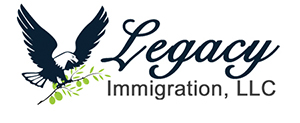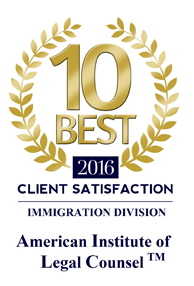Section 212(d)(5) of the INA, 8 U.S.C. 1182(d)(5), vests in the Secretary the discretionary authority to grant parole for urgent humanitarian reasons or significant public benefit to applicants for admission on a case-by-case basis. DHS is proposing to add a new section 8 CFR 212.19 to provide guidance with respect to the use of parole for entrepreneurs of start-up entities based upon significant public benefit.
In August of 2016, U.S. Citizenship and Immigration Services (USCIS) published the proposal of a new rule which would allow certain international entrepreneurs to be “paroled” into the U.S. (temporary permission to enter and stay in the U.S.) in order to start or build their businesses in the United States.
What is the Purpose of the International Entrepreneur Parole?
The goal of this new rule is to improve the ability of certain promising start-up founders to begin growing their companies in the U.S. (to help improve our nation’s economy through increased capital spending, innovation and job creation.) This new rule may help about 2,940 entrepreneurs to enter the U.S. per year.
Who Qualifies for International Entrepreneur Parole?
The grant of “parole” is discretionary on a “case-by-case” basis. To be eligible for International Entrepreneur Parole (IEP), a candidate would need to prove the following:
Formation of New Start-Up Entity. The applicant has recently formed a new entity in the United States that has lawfully done business since its creation and has substantial potential for rapid growth and job creation. DHS proposes that an entity may be generally considered recently formed if it was created within the 3 years preceding the date of the filing of the initial parole application.
Applicant is an Entrepreneur. The applicant is an entrepreneur of the start-up entity who is well-positioned to advance the entity’s business. DHS proposes that an applicant may generally meet this standard by providing evidence that he or she: (1) possesses a significant (at least 15 percent) ownership interest in the entity at the time of adjudication of the initial grant of parole; and (2) has an active and central role in the operations and future growth of the entity, such that his or her knowledge, skills, or experience would substantially assist the entity in conducting and growing its business in the United States. Such an applicant cannot be a mere investor.
Significant U.S. Capital Investment or Government Funding. The applicant can further validate, through reliable supporting evidence, the entity’s substantial potential for rapid growth and job creation. DHS proposes that an applicant may be able to satisfy this criterion in one of several ways:
a. Investments from established U.S. investors. The applicant may show that the entity has received significant investment of capital from certain qualified U.S. investors with established records of successful investments. DHS proposes that an applicant would generally be able to meet this standard by demonstrating that the start-up entity has received investments of capital totaling $345,000 or more from established U.S. investors (such as venture capital firms, angel investors, or start-up accelerators) with a history of substantial investment in successful start-up entities.
b. Government grants. The applicant may show that the start-up entity has received significant awards or grants from Federal, State or local government entities with expertise in economic development, research and development, and/or job creation. DHS proposes that an applicant would generally be able to meet this standard by demonstrating that the start-up entity has received monetary awards or grants totaling $100,000 or more from government entities that typically provide such funding to U.S. businesses for economic, research and development, or job creation purposes.
c. Alternative criteria. DHS further proposes alternative criteria under which an applicant who partially meets one or more of the above sub-criteria related to capital investment or government funding may be considered for parole under this rule if he or she provides additional reliable and compelling evidence that his or her entry would provide a significant public benefit to the United States. Such evidence would need to serve as a compelling validation of the entity’s substantial potential for rapid growth and job creation.
How is the International Entrepreneur Parole Different than the EB-5 Investor or E-2 Investor Visas?
The current “investor” visas available today include the EB-5 immigrant investor visa (“million-dollar green card”) or the E-2 nonimmigrant investor visa (for designated treaty countries). Although the EB-5 visa leads to a green card, the limitations of the EB-5 investor visa is the investment of either $1,000,000 or $500,00 in a Targeted Employment Area (TEA).
In fact, earlier this month (January of 2017), the U.S. Department of Homeland Security (DHS) announced the proposal to increase the minimum investment amounts for all new EB-5 petitioners. DHS would increase the standard minimum investment amount from $1 million to $1.8 million. For those seeking to invset in a new commercial enterprise in a Targeted Employment Area (TEA), DHS would increase the minimum investment of $500,000 to $1.35 million. So the proposal affects both direct program and regional center programs.
How Long Would the Parole Last?
A total of five (5) years. If approved for the initial parole, it would provide a temporary stay of up to two (2) years. After the initial two (2) years, one could apply for “re-parole” for up to an additional three (3) years. The purpose of the extension would be for the entrepreneur to oversee and grow his/her start-up entity in the United States. A subsequent request for re-parole would be considered only when the entrepreneur and his or her start-up entity continues to provide a significant public benefit as evidenced by substantial increases in capital investment, revenue, or job creation.
What Do I Need to Prove to Get Approved for “Re-Parole”?
DHS proposes to allow individuals granted parole under this rule to be considered for re-parole for an additional period of up to 3 years if, and only if, they can demonstrate that their entities have shown signs of significant growth since the initial grant of parole and such entities continue to have substantial potential for rapid growth and job creation.
As proposed, an applicant under this rule would generally need to demonstrate the following to be considered for a discretionary grant of an additional period of parole:
Continuation of Start-Up Entity. The entity continues to be a start-up entity as defined by the proposed rule. For purposes of seeking re-parole, an applicant would be able to meet this standard by showing that the entity: (a) has been lawfully operating in the United States during the period of parole; and (b) continues to have substantial potential for rapid growth and job creation.
Applicant Continues to Be an Entrepreneur. The applicant continues to be an entrepreneur of the start-up entity who is well-positioned to advance the entity’s business. DHS proposes that an applicant may generally meet this standard by providing evidence that he or she:
(a) continues to possess a significant (at least 10 percent) ownership interest in the entity; and
(b) continues to have an active and central role in the operations and future growth of the entity, such that his or her knowledge, skills, or experience would substantially assist the entity in conducting and continuing to grow its business in the United States. This reduced ownership amount takes into account the need of some successful start-up entities to raise additional venture capital financing by selling ownership interest during their initial years of operation.
Significant U.S. Investment/Revenue/Job Creation. The applicant can further validate, through reliable supporting evidence, the start-up entity’s continued potential for rapid growth and job creation. DHS proposes that an applicant would be able to satisfy this criterion in one of several ways:
a. Investments from established U.S. investors. The applicant may show that during the initial period of parole the start-up entity received additional substantial investments of capital, including through qualified investments from U.S. investors with established records of successful investments; significant awards or grants from government entities that regularly provide such funding to start-up entities; or a combination of both. DHS proposes that an applicant would generally be expected to demonstrate that the entity received at least $500,000 in additional qualifying funding during the initial parole period. As noted previously, any private investments must be made by qualified U.S. investors (such as venture capital firms, angel investors, or start-up accelerators) with a history of substantial investment in successful start-up entities. Government awards or grants must be from Federal, State or local government entities with expertise in economic development, research and development, and/or job creation.
b. Revenue generation. The applicant may show that the start-up entity has generated substantial and rapidly increasing revenue in the United States during the initial parole period. DHS proposes that an applicant would generally be expected to demonstrate that the entity reached at least $500,000 in annual revenue, with average annualized revenue growth of at least 20 percent, during the initial parole period.
c. Job creation. The applicant may show that the start-up entity has demonstrated substantial job creation in the United States during the initial parole period. DHS proposes that an applicant would generally be expected to demonstrate that the entity created at least 10 full-time jobs for U.S. workers during the initial parole period. d. Alternative criteria. As with initial parole, DHS further proposes alternative criteria under which an applicant who partially meets one or more of the above sub-criteria related to capital investment, revenue generation, or job creation may be considered for re-parole under this rule if he or she provides additional reliable and compelling evidence that his or her parole would continue to provide a significant public benefit. As discussed above, such evidence would need to serve as a compelling validation of the entity’s substantial potential for rapid growth and job creation.
Takeaway Message:
If qualified, the candidate would enter the U.S. under “parole,” not under a visa. During this time, the investor could accrue sufficient funds to apply for the EB-5 Program.
“Parole” already exists for many other qualification, but under this new rule, it would be extended to foreign entrepreneurs who can prove that their stay in the U.S. would provide a significant public benefit through rapid business growth and job creation. This type of parole is ideal for someone who does not have the funds for the EB-5 program and is from a non-treaty (E-2) country, but still has the desire to build a business in the U.S.
Parole is not an admission to the United States and may be terminated at any time in DHS’ discretion, consistent with existing regulations. Parole does not allow one to change status or adjust status unless the parolee is otherwise eligible. Even so, Parole is still of immense value because individuals who are “inadmissible” may still be paroled into the U.S.
Contact Us
Please contact our office to schedule a consultation. We are available Monday through Friday from 8:30 am to 8:00 pm and Saturday from 8:00 am to 12:00 pm. In-person consultations are by appointment only. Please call our office at 301.529.1912 or click here to contact us. Please be sure to provide a timeline of events along with details of your entire immigration histo










